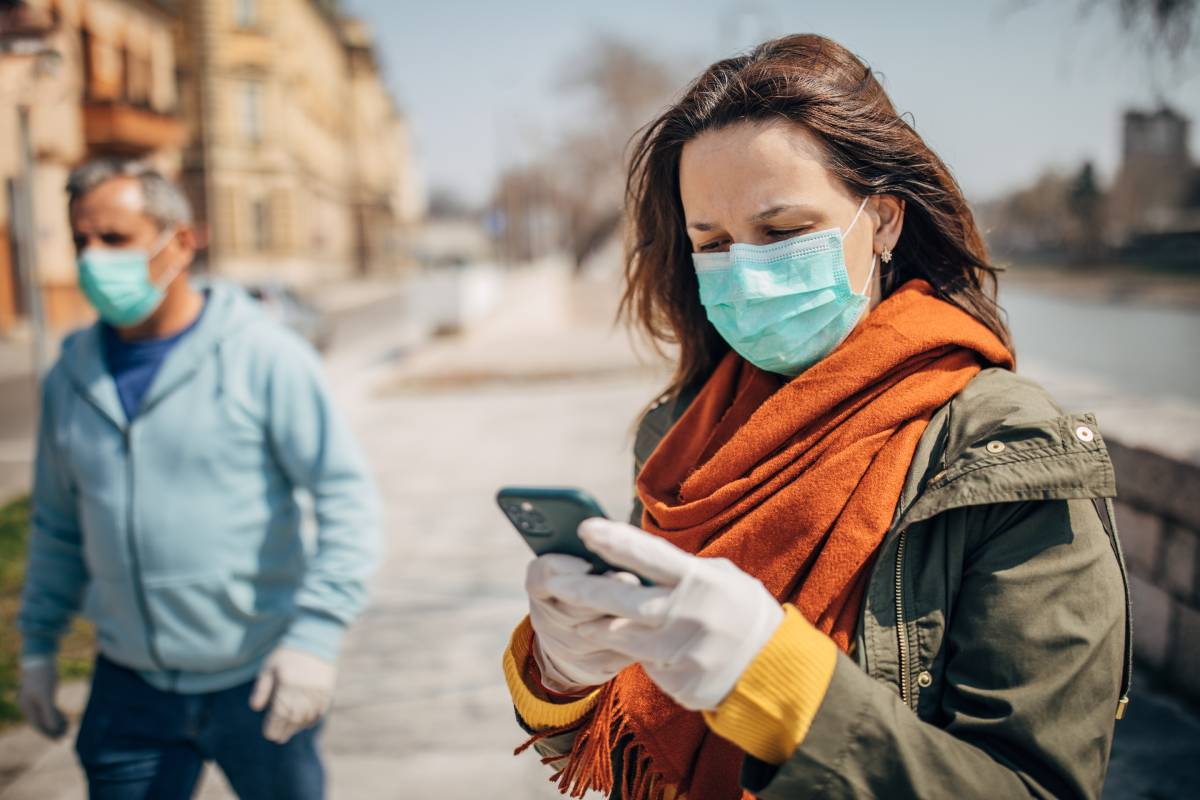The COVID-19 pandemic has affected every country since its emergence in 2020 – to date, COVID-19 has officially resulted in 1 million deaths in the United States alone, and over 6 million deaths globally 1. The International Monetary Fund estimates that, if COVID-19 becomes endemic, global economic losses could exceed $5 trillion by as early as 2026 2. Therefore, understanding individual risk to COVID-19 infection, vaccine efficacy, and the development of individual immunity due to a prior COVID-19 infection are key to understanding its pathological underpinnings and any potential health- and cost-saving strategies.
Prior studies investigating protection imparted by a prior COVID-19 infection against reinfection have found a certain degree of natural immunity ranging from 80.5-100%, but that acquired immunity does decrease over time.
First, a Danish population-level observational study assessing the degree to which an infection with SARS-CoV-2 confers protection towards subsequent reinfection 3 found that protection against repeat infection reached over 80%. In addition, no differences in protection against repeat infection were found across sex, and no evidence was found of waning protection with time during the study period.
Second, an Ohio-based study was carried out as a retrospective cohort study focused on one unique health system 4. Protection offered from prior infection reached nearly 82%, while that against symptomatic infection reached almost 85%. Interestingly, risk of reinfection as defined by the study decreased with time within the study period. The authors suggested that viral shedding or ongoing immune responses may persist beyond 3 months, which is a potential explanation for the observed pattern, and may not represent a true reinfection with COVID-19.
Third, a California-based meta-analysis reviewed studies published since the fall of 2021 on the general strength and duration of protection from a COVID-19 infection as compared to that from COVID-19 vaccination 5. This meta-analysis identified well-performed biological studies demonstrating protective immunity after infection, alongside multiple epidemiological and clinical research reports identifying that the risk of repeat SARS-CoV-2 infection decreased by 80.5-100% among patients who had previously contracted COVID-19. These researchers concluded that, due to the strong association and biological basis for protection 6, clinicians should consider counselling patients having recovered from COVID-19 on their risk for reinfection, while diligently documenting their previous infection status in their medical records.
Most recently, a U.S.-based study performed a survival analysis among a large population of Americans to probe the degree and duration of protection resulting from natural immunity in unvaccinated individuals, studying over 24,000 cases and 97,000 controls. Among over 120,000 patients spanning over 10 million days of follow-up, data showed that prior COVID-19 was associated with an 85% protection against recurrent COVID-19, specifically 88% protection against hospitalization for COVID-19 and 83% protection against COVID-19 not requiring hospitalization. Protection levels remained stable over the study period, i.e. lasting up to 9 months from the initial COVID-19 infection. These findings suggest that natural immunity was associated with similar levels of protection against both mild and severe disease.
This latest study was limited in that it did not account for possible COVID-19 testing or vaccination at outside health care facilities, although such cases of undetected infection would be expected to be balanced across cases and controls. In addition, patients having recovered from COVID-19 may behave differently from those without any degree of immunity, potentially confounding results.
Findings to date on immunity from prior COVID-19 infection have important implications for vaccine policy and public health. In particular, these data could inform decisions on whom to vaccinate or not, and much guidance already considers recovery from recent infection to be a form of protection. Future work remains, however, to confirm and further specify these findings.
References
- WHO Coronavirus (COVID-19) Dashboard | WHO Coronavirus (COVID-19) Dashboard With Vaccination Data. Available at: https://covid19.who.int/.
- Strategy to Achieve Global Covid-19 Vaccination by mid-2022.
- Hansen, C. H., Michlmayr, D., Gubbels, S. M., Mølbak, K. & Ethelberg, S. Assessment of protection against reinfection with SARS-CoV-2 among 4 million PCR-tested individuals in Denmark in 2020: a population-level observational study. Lancet (2021). doi:10.1016/S0140-6736(21)00575-4
- Sheehan, M. M., Reddy, A. J. & Rothberg, M. B. Reinfection Rates among Patients Who Previously Tested Positive for Coronavirus Disease 2019: A Retrospective Cohort Study. Clin. Infect. Dis. (2021). doi:10.1093/cid/ciab234
- Kojima, N. & Klausner, J. D. Protective immunity after recovery from SARS-CoV-2 infection. The Lancet Infectious Diseases (2022). doi:10.1016/S1473-3099(21)00676-9
- Goel, R. R. et al. Distinct antibody and memory B cell responses in SARSCoV-2 naïve and recovered individuals following mRNA vaccination. Sci. Immunol. (2021). doi:10.1126/sciimmunol.abi6950
